From Cave To Case
How the unique characteristics of the chalky cellars inspired Ruinart to create an avant-garde design for the case of its vintage champagne Dom Ruinart 2010
by Pamela Tailor | September 2022
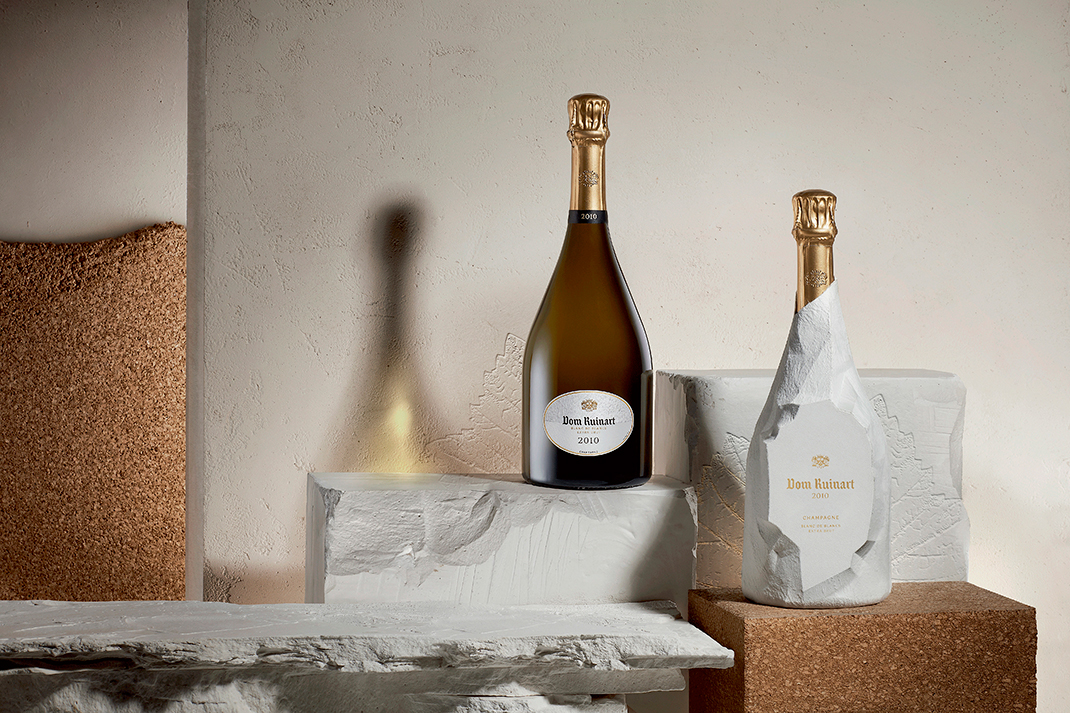
THE CHALK WRAP CASE: 11 TIMES LIGHTER THAN FORMER GIFT BOX. -9,13 TONS OF PAPER SAVED PER YEAR VC FORMER GIFT BOXES | PHOTO BY ATELIER MAI 98
Only a few weeks after the first release, I had the honor to receive a box containing the new Dom Ruinart Blanc de Blancs 2010. When I opened it, I was surprised to find a real gem being revealed! While looking at the shape of this extraordinary package, I had the impression that time suddenly stopped. I felt immersed in the delightful universe of Maison Ruinart, or more precisely, I saw myself being surrounded by the chalky walls of the historic Crayères. Those caves are the place where this quintessential champagne has aged for more than 10 years, during which it could accomplish its exceptional flavor. I was instantly wondering which role the element time played in the creation of this remarkable vintage champagne and its magnificent packaging.
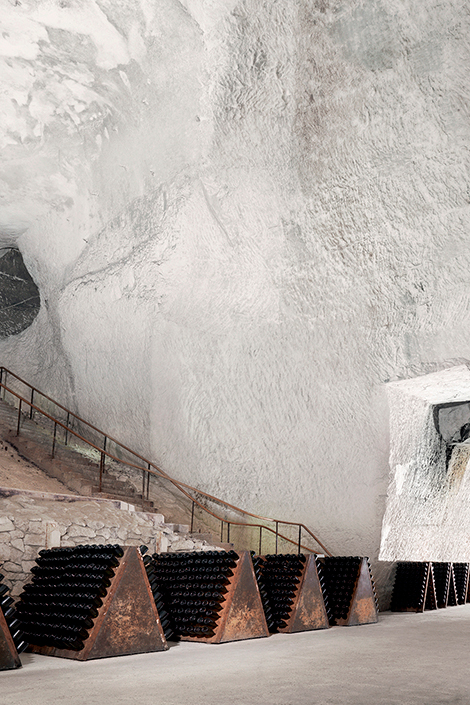
MAISON RUINART HISTORICAL CHALK QUARRIES | PHOTO BY THOMAS DUVAL
"I saw myself being surrounded by the chalky walls of the historic Crayères"
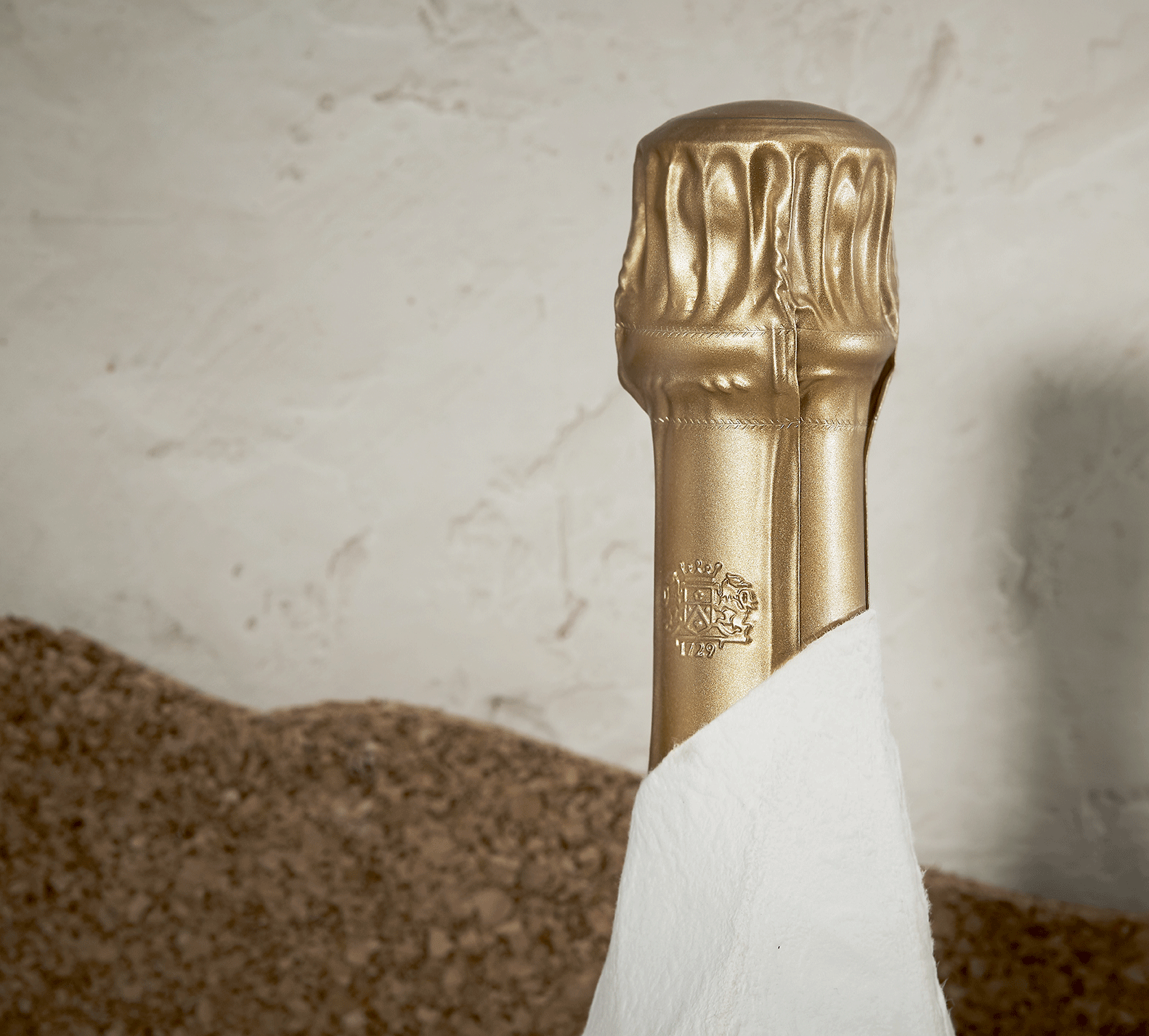
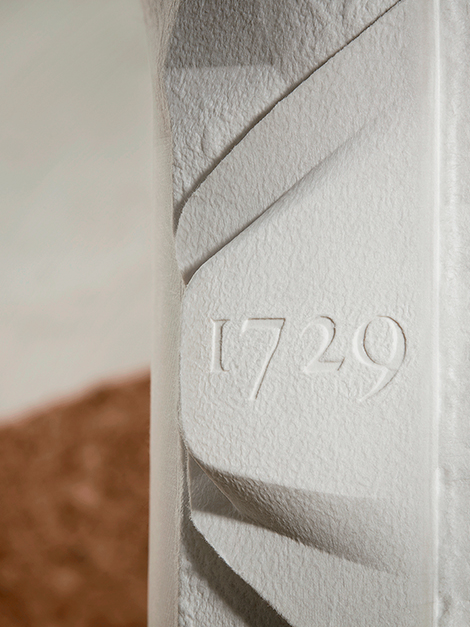
DOM RUINART CHALK WRAP CLOSE-UP | PHOTO BY ATELIER MAI 98
Dom Ruinart Blanc de Blancs 2010 was dressed in a light, elegant case made of sustainable cellulose fibres. The manufacturing of this unique case was built upon the technology developed for the non-vintage second-skin packs of the brand, but visually, it feels like the design goes one step further. Made of paper from sustainably managed European forests,
the monomaterial folding box crafted only using water, heat and pressure was molded in a single piece. Differently from the equally beautiful non-vintage packs which were shaped to follow and highlight the iconic curvy silhouette of the Ruinart bottles, the Dom Ruinart 2010 packaging has an individual sculptural design with its own personality.
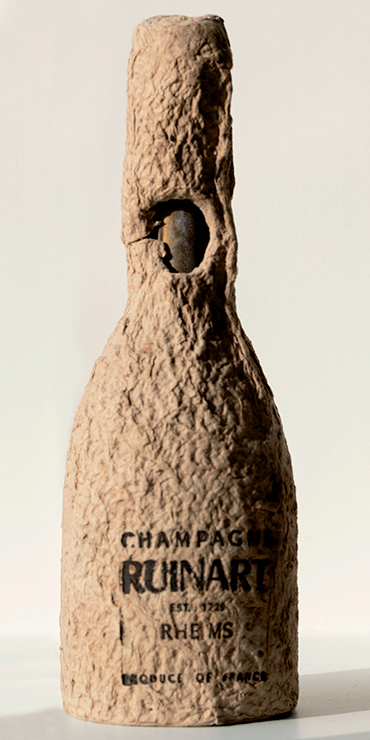
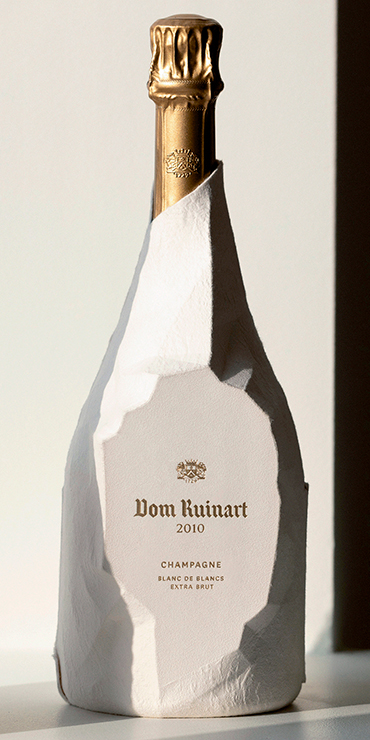
ORIGINAL CASE OF THE DOM RUINART CUVÉE, ALREADY MADE OF PAPER USED FOR TRANSPORT UNTIL THE END OF THE 1970s | PHOTO BY ATELIER MAI 98
The design contains nearly 400 facets making up the case’s structure, with gentle reliefs and crisscross crevices, as if chiseled directly into chalky rock. The front of the packaging is sharp and flat like a facet of a precious gemstone while it seems perfectly designed to offer a stage for the brand elements. What is remarkable about those elements is the fact that they consist of an individually crafted gold foil applied manually. That’s also the first time that foil detailing has been applied directly to this kind of packaging!
The innovative spirit of this product is not only reflected by the packaging, but it is a core element of the Maison’s DNA. Dom Ruinart 2010 marks a major step in reviving the ancient tradition of ageing champagne using natural cork stoppers instead of the typically used crown caps. Although cork is porous, over a long period of time, it remains extremely stable. Metal caps instead, allow small amounts of oxygen to continually enter the bottle. The bottles with corks reveal tenser wines with an additional layer of complexity. And here again, time plays a crucial role. It takes as long as 43 years and three harvests used otherwise, up to the moment a cork tree has the maturity to provide the material in proper quality for the production of the Ruinart cork stopper.
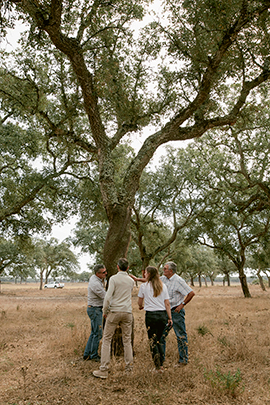
FRÉDÉRIC PANAIOTIS, MAISON RUINART CELLAR MASTER, AND LOUISE BRYDEN, IN-HOUSE OENOLOGIST, VISITING THE MONTADO CORK OAK FOREST IN PORTUGAL | PHOTO BY CATARINA INACIO
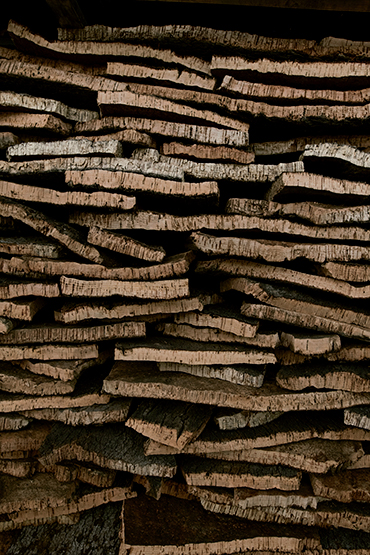
CORK OAK FROM MONTADO FOREST ECO-RESPONSIBLY MANAGED IN PORTUGAL | PHOTO BY CATARINA INACIO
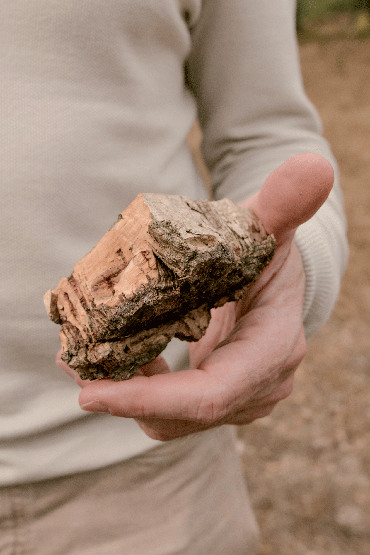
CORK OAK FROM MONTADO FOREST ECO-RESPONSIBLY MANAGED IN PORTGUAL | PHOTO BY CATARINA INACIO
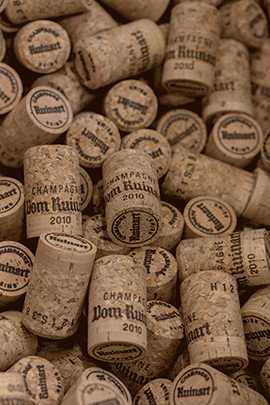
DOM RUINART 2010 CORK | PHOTO BY ROMAIN GUITTET
After this experience, I came to the conclusion that time is not only a highly precious value in our lives. Time is probably also one of the most emerging luxury goods of the global cultural Zeitgeist. It is limited to all of us, at least while living on this planet. Time is a pre-requisite to create luxury goods and some brands seem to have mastered the use of time for their own benefit. They take as much time as is needed to create exceptional products – one could almost get the impression that they reside in a parallel universe.
- This article has been published on the Edition 200 of the Creativ Verpacken Magazine -
© 2025 Time For Champagne - All Rights Reserved